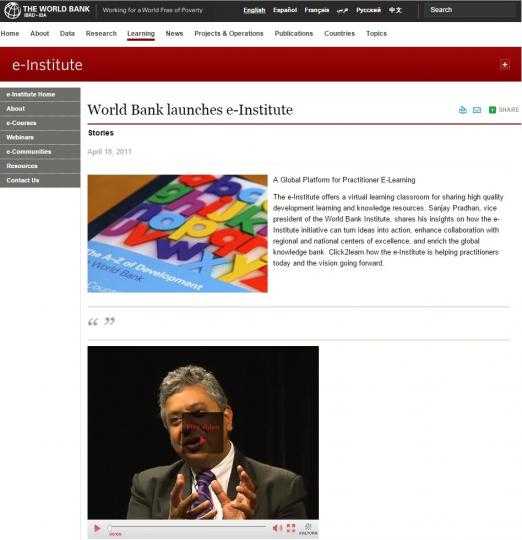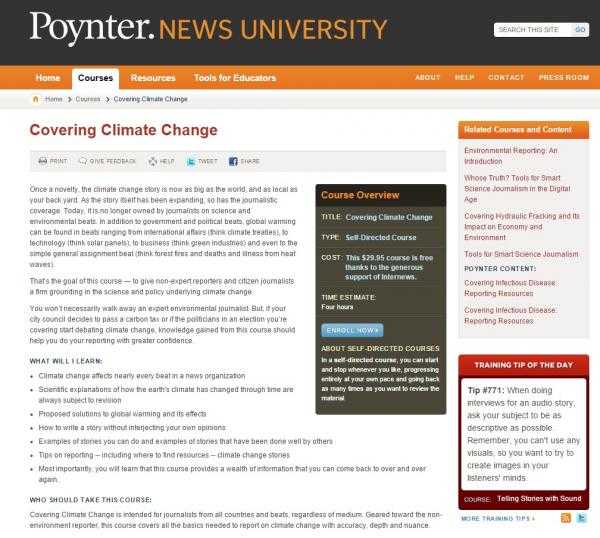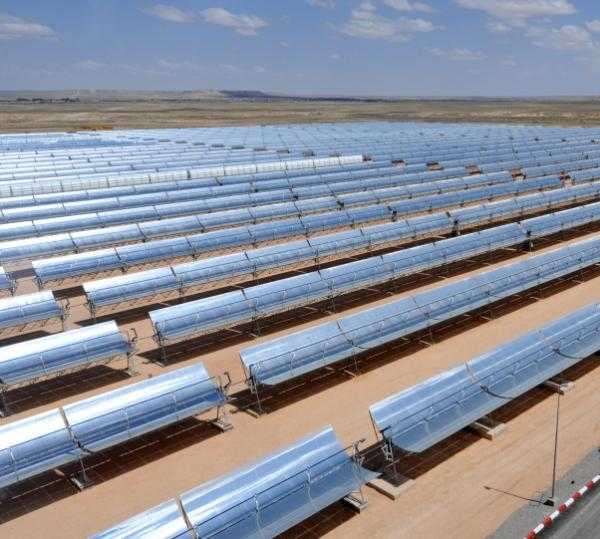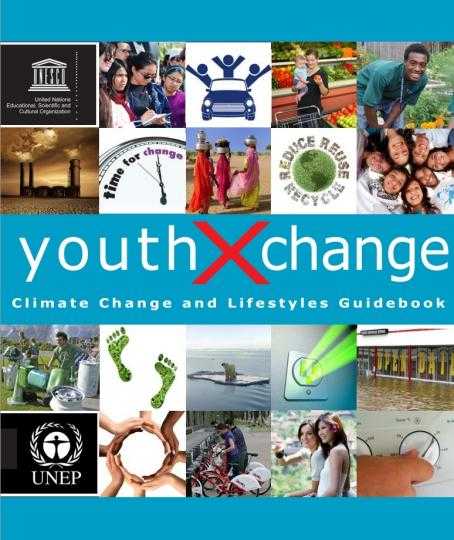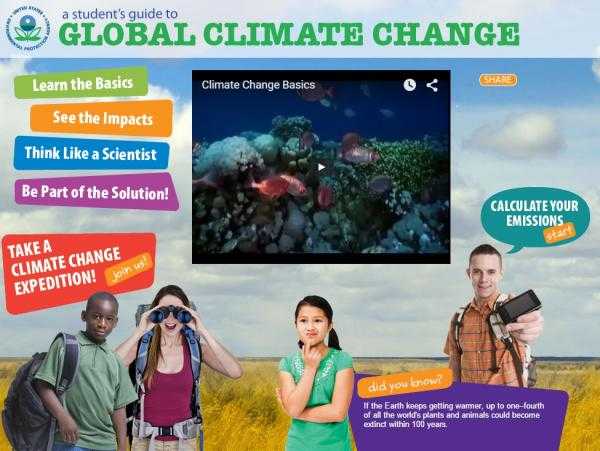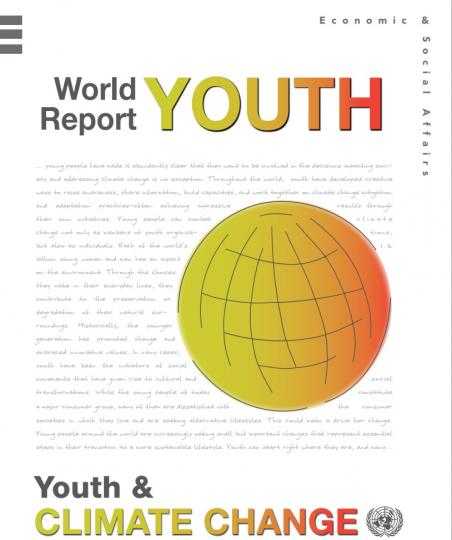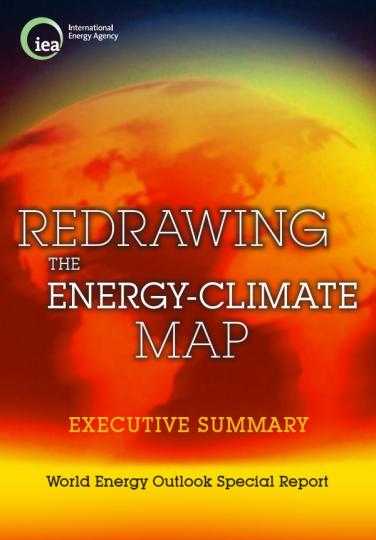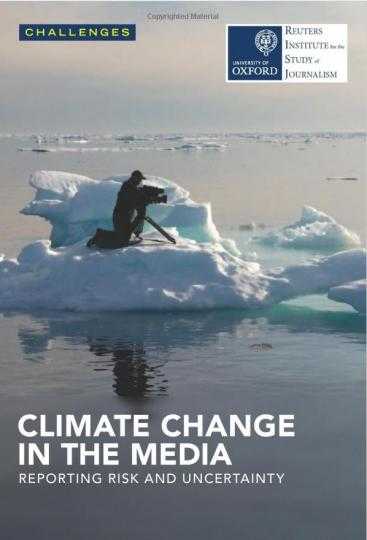The e-Institute offers a virtual learning classroom for sharing high quality development learning and knowledge resources.
From our friends at Earth Journalism Network and Poynter. News University.
This is an Internews and Internews Europe project dedicated to the empowerment of environmental journalists from developing countries around the world.
At a time when the Earth’s resources are being depleted faster than they can be replenished, adopting and promoting more sustainable ways of living that are in harmony with our communities and nature has never been more crucial. This guidebook supports young people to become advocates and agents of change for sustainable lifestyles in their respective communities around the world.
Credit: UNEP.
This website provides information that is current, relevant, and useful for learning more about climate change.
Young people have made it abundantly clear that they want to be involved in the decisions impacting society and addressing climate change is no exception. Throughout the world, youth have developed creative ways to raise awareness, share information, build capacities, and work together on climate change mitigation and adaptation practices–often achieving impressive results through their own initiatives. Young people can combat climate change not only as members of youth organizations, but also as individuals.
Governments have decided collectively that the world needs to limit the average global temperature increase to no more than 2 °C and international negotiations are engaged to that end. Yet any resulting agreement will not emerge before 2015 and new legal obligations will not begin before 2020. Meanwhile, despite many countries taking new actions, the world is drifting further and further from the track it needs to follow. The energy sector is the single largest source of climate-changing greenhouse-gas emissions and limiting these is an essential focus of action.
This report describes organized attacks on climate science, scientists and scientific institutions like the UN Intergovernmental Panel on Climate Change (the IPCC), that have gone on for more than 20 years. It sets out some of the key moments in this campaign of climate denial started by the fossil fuel industry, and traces them to their sources. The tobacco industry’s misinformation and PR campaign in the US against regulation reached a peak just as laws controlling tobacco were about to be introduced.
Scientists and politicians are increasingly using the language of risk to describe the climate change challenge. Some researchers say stressing the ‘risks’ from climate change rather than the ‘uncertainties’ can create a more helpful context for policy makers and a stronger response from the public. But understanding the concepts of risk and uncertainty – and how to communicate them – is a hotly debated issue. In this book, James Painter analyses how the international media present these and other narratives around climate change.
This book responds to a very real need in African journalists’ reporting of the complex phenomenon of climate change. Climate change poses a clear danger to lives and livelihoods across Africa. Journalists there have critical roles to play in explaining the cause and effects of climate change, in describing what countries and communities can do to adapt to the impacts ahead, and in reporting on what governments and companies do, or do not do, to respond to these threats.
